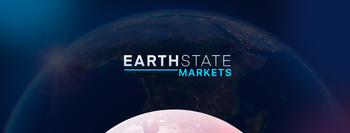Imagine a future where the economic and financial system serves everyone—a system that’s accountable for its effects on people and the planet. Envision a world where financial markets serve all members of society and where finance plays a central role in solving the social and environmental challenges facing the global community, such as poverty, inequality, and climate change. In this future, investors integrate impact considerations into all decisions – building strong communities, a healthy environment, and a sustainable future for all people. – Global Impact Investing Network

The Future of Capitalism
The New Capitalism Project launched in February 2020 to explore how diverse stakeholders from the business and finance community, economists, policy makers, grassroots organisers, and others can better align their work to drive systemic change towards building a more just, inclusive, and equitable economic system.
Backed by the Omidyar Network, the Ford and Rockefeller foundations, and other high-profile funders, the project set out to develop shared perspectives on critical questions, such as: How is the current economic system failing? What would a “better” economic system look like? What are the key barriers to such aspirations? And finally, what are the most important and integrated actions to drive systemic change?
Opinions about what this future economy will look like, and what role traditional business will play in leading transformation, vary considerably. Some participants in the consultations strongly believe in the forward-looking power of business and the redemptive possibilities within capitalism; others don’t.
Some organisational strategies emphasise collaboration, others see change only coming through confrontation.
But there does seem to be an emerging consensus, described in the project's interim report (not yet published), “to move towards a more unified and positive version of the future” that will bridge ideological silos and theories of change, to build a more coordinated movement towards creating an economy that works for people and the planet.
- The report describe what a a not-so-imaginary future economic system could look like, across seven dimensions that move the narrative beyond well-worn terms like “inclusive,” “equitable” and “just”.
- This narrative signals that big changes are about to happen!
With acknowledgement to Impact Alpha, here's a synopsis of these themes on what the future could look like.
1. What good business looks like
Businesses and financial institutions, based on common impact standards, have earned public trust through their accountability for value creation for all stakeholders, including the natural and social systems on which healthy markets depend. The legal definition of business includes “for public benefit” – and businesses that don’t maximize public good lose their licenses to operate. Small businesses, cooperatives, employee-owned businesses and corporate forms not yet invented compete with big businesses, and all businesses build power, wealth, voice, opportunity for workers and communities marginalised by the prior system.
2. What good money + capital look like
Both the public and private investors redefine the purpose of capital to finance positive, measurable impact for people, communities and the environment. Good money drives personal and community well-being; and ensures equitable investments necessary for every person to reach their full potential and every community to thrive.
3. What good investment looks like
Long-term value creation is embedded into accounting, reporting and corporate governance, with environmental, social and governance, or ESG considerations integrated into all investment decision-making. Strengthened regulations have curbed financial sector power and concentration, banned extractive activities and empowered asset owners and their communities to reclaim and assert power in corporate governance.
Public investors use their strength to shape capital markets. More firms and funds are owned and operated by people of color and women, and a pipeline of talent is cultivated to take on leadership in the C suite. Investment and finance professionals have a mandate to serve under-served communities and must demonstrate public benefits, and can lose their credentials if an annual review shows they have failed to serve a public benefit. People in communities have the power to own and create wealth in their local economies.
4. How we measure what matters
Shareholder primacy and financial materiality has given way to societal and environmental materiality. Fiduciary duty requires taking societal and environmental materiality and impact factors into account. Negative and positive externalities are disclosed, priced and built into the financial markets.
5. What working peoples’ voice and power looks like
Labour and capital are equally valued. “Worker investors” are equal in importance to capital investors in corporations and industries. Workers reap the benefits of their labor, are valued for their economic contribution, and compensated appropriately through living and thriving wages and jobs with dignity, benefits, and opportunities for growth.
Working people are seen as a long-term asset to be cultivated and invested in, not an expendable expense item. Companies publicly disclose how they treat workers. Public benefit companies adopt practical measures to give working people a voice in corporate governance. Corporate profits are capped, and profits shared above that cap. Wage and capital income is taxed equally.
6. What government’s role looks like
A functioning, multiracial democracy creates guardrails, duties and incentives to ensure that all people enjoy a decent basic standard of living (wages, healthcare, etc.) and to create a market in harmony with nature. Rules and practices prioritize people over capital and support innovation and competition through regulations, tax policies, restrictions on lobbying and monopolistic manipulations and mandates for lending to specific communities, addressing a history of structural racism and inequality. Uniform reporting requirements create transparency about companies’ negative and positive impact on stakeholders.
7. What business engagement in politics looks like
Corporations understand the moral responsibility of standing up for good democratic principles and practices. Corporate political activities are aligned with companies’ commitments to all stakeholders. Corporations, organizations and other entities are barred from contributing to political campaigns and restrictions are placed on individual campaign contributions.
The new definition of fiduciary duty requires companies to disclose lobbying activities and demonstrate that their lobbying serves the broader interest of their stakeholders. Accordingly, business leaders use their influence to address broader issues, including reforms to the electoral and legislative system to build the center rather than amplify the extremes, and other long-term business interests like stakeholder primacy, climate action, living wages and worker power.






